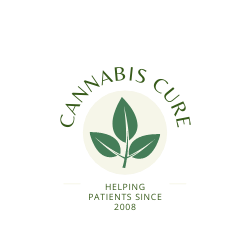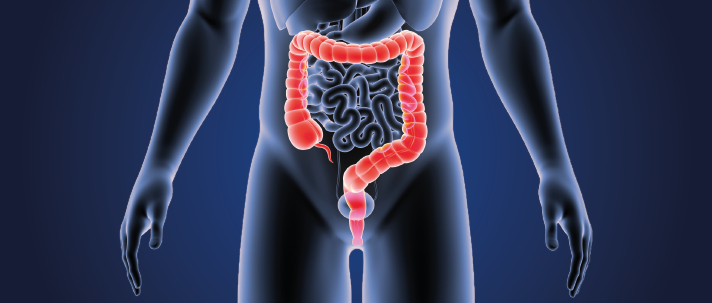Colorectal Cancer
Colorectal cancer is the third most common cancer in the UK and usually starts from small growths called polyps.
It is also a misunderstood cancer. Often referred to as colon, rectal, or bowel cancer because polyps can grow in the colon, rectum, or large bowel, it is wrongly considered something that only affects older generations, a misconception that is stopping younger people with symptoms seeking help. A survey released in August 2020 by Bowel Cancer UK surveyed 1,073 people in the UK who had been diagnosed with bowel cancer under the age of 50. The report titled Never Too Young found, prior to prognosis, 50 percent of people were not aware they could develop the disease at a younger age. The survey also found that if they had displayed symptoms, 30 percent had delayed visiting their GP for at least three months while more than four in ten were forced to visit their doctor three times or more.
What Are The Symptoms?
A persistent change in bowel habits, constipation, diarrhea, rectal bleeding, blood in the stool, abdominal cramping or bloating, a feeling of not being empty after a bowel movement, decreased appetite, anemia, nausea or vomiting, unexplained weight loss, an unexplained lump in your stomach and fatigue.
What Are The Risk Factors?
Many studies have stated that individuals who consume high levels of red and processed meat such as bacon, ham, and sausages have a higher likelihood of developing bowel cancer.
A study published in 2019 in the International Journal of Epidemiology found that people who were consuming red and processed meat four or more times per week had a 20 percent increased risk of colorectal cancer compared with those who were consuming red and processed meat less than twice a week. The same study found that alcohol is another risk factor while fibre from bread and breakfast cereals was associated with reduced risk.
The strongest link yet between nitrates in processed red meats and bowel, colon, and rectal cancers was found in a new study by Queen’s University Belfast. The researchers examined meat containing sodium nitrate – a preservative that extends shelf life and enhances colour – in isolation for the first time in a comprehensive study and found a link to colorectal cancer increased from 50 to 65 percent.
Haem is another controversial pigment in red meat that damages cells and causes bacteria to release harmful substances, while cancer-causing chemicals Heterocyclic amines (HCAs) and polycyclic amines (PCAs) can be produced when meat is cooked at a high temperature, damaging cells in the bowel.
Other risks include having Type 2 diabetes, being overweight, and having a sedentary lifestyle.
How Is It Diagnosed?
Bowel scope screenings help prevent bowel cancer by looking into the lower part of the bowel and are offered by the NHS to those over 55.
Colonoscopies tend to follow other screening tests, which typically include faecal tests to check for traces of blood. During a colonoscopy, which checks further up the bowel than a bowel scope screening, a thin flexible tube attached to a tiny camera, called a colonoscopy, is inserted through your anus to look inside your large bowel. Once the colonoscope is inside, the specialist will gently pump carbon dioxide gas inside your large bowel to open it up and examine the lining. If any polyps are found, they are usually removed straight away using a tiny wire loop passed through the colonoscope. The colonoscopy specialist may also take a tiny piece of the inside of your bowel, a biopsy, to look at under a microscope. If health issues mean you cannot undergo a colonoscopy, you will have a specialist bowel X-ray and any polyps will be removed at a later date.
How Does Medical Cannabis Help With Colorectal Cancer?
To date, scientific research on how cannabinoids – naturally-occurring chemical compounds – in medical cannabis can treat cancer has almost entirely taken place in a laboratory or in animal models, which means medical trials on humans are necessary.
What we do know is that the body naturally produces cannabinoids, like the cannabis plant, which are called endocannabinoids (from ‘endogenous’ which means ‘growing or originating within an organism’).
Our endocannabinoid system is responsible for maintaining homeostasis within the body and regulates a variety of functions including sleep, digestion, pain, memory, fertility, inflammation, mood, and cognition. Our endocannabinoids bind to endocannabinoid receptors, of which there are two types: CB1 receptors, which are in the brain and central nervous system, and CB2 receptors, which are in the immune system. Enzymes then break down endocannabinoids once they’ve carried out their intended function to continue homeostasis.
When our endocannabinoid system becomes deficient – when the body isn’t correctly making endocannabinoids, if there aren’t enough receptors, if there is an overabundance of enzymes, or if there isn’t adequate communication between our endocannabinoids and receptors – we experience health problems like stress, insomnia, illness, and disease, including cancer. Ingesting medical cannabis allows the plant’s cannabinoids to mimic the natural compounds in our body and bind to our CB1 and CB2 cannabinoid receptors, helping the body function properly again.
A mix of studies listed in the journal Nature Reviews Cancer describes the effects medical cannabis has had on cancer cells in the lab, which include:
- Triggering cell death, through a mechanism called apoptosis
- Stopping cells from dividing
- Preventing new blood vessels from growing into tumours
- Reducing the chances of cancer cells spreading through the body, by stopping cells from moving or invading neighbouring tissue
- Speeding up the cell’s internal ‘waste disposal machine’ – a process known as autophagy – which can lead to cell death
It even appears that cannabinoids can exert effects on cancer cells that don’t involve cannabinoid receptors, but this remains a vague area.
If you’re opting for the conventional medicine route, which typically includes chemotherapy and radiation, medical cannabis can also soothe side-effects that include fatigue, nausea, appetite loss and pain, and more, helping you regain a quality of life again.
How Does Medical Cannabis Directly Affect Colon Cancer Tumours?
Researchers at Penn State College of Medicine in Pennsylvania say that some cannabinoid compounds may inhibit the growth of colon cancer cells. The study, which took place in 2019, tested the effects of 370 different synthetic cannabinoid compounds on seven different types of human colon cancer cells in test tubes.
While the compounds most commonly associated with cannabis – THC, and CBD – showed little to no effect, ten other compounds were effective at inhibiting cancer cell growth.
‘“Now that we’ve identified the compounds that we think have this activity, we can take these compounds and start trying to alter them to make them more potent against cancer cells,” Vrana said. “And then eventually, we can explore the potential for using these compounds to develop drugs for treating cancer.”
Compounds that target fast cell division might be particularly important to treating colon cancer because, like the skin, healthy colon cells divide rapidly and that makes them particularly at risk for cancer.
“Every time a cell divides, there’s the chance that it will mutate and keep dividing when it shouldn’t, which is how cancers can start. So if we block that signal that’s telling cancer cells to continue to divide, that could be a way to stop that cancer.”
Further Reading
How and where to safely buy RSO medical cannabis oil online
Help and Advice
If you need advice or help with Medical Cannabis and RSO, please use the contact form provided. We try to answer all emails within 24 hours and are happy to help and advise on all aspects of Medical Cannabis treatments in complete confidence.
Disclaimer: Please note that whilst we consider ourselves subject matter experts regarding Medical Cannabis, we are not medical professionals. We are a Medical Cannabis information resource, educating and helping those in need. Whilst we are very strong believers in the benefits of Medical Cannabis, there is still limited evidence that Medical Cannabis can treat/cure all the illnesses we discuss on our website. We recommend you do as much research as possible, and where practical seek professional medical advice before proceeding with Medical Cannabis oil.

